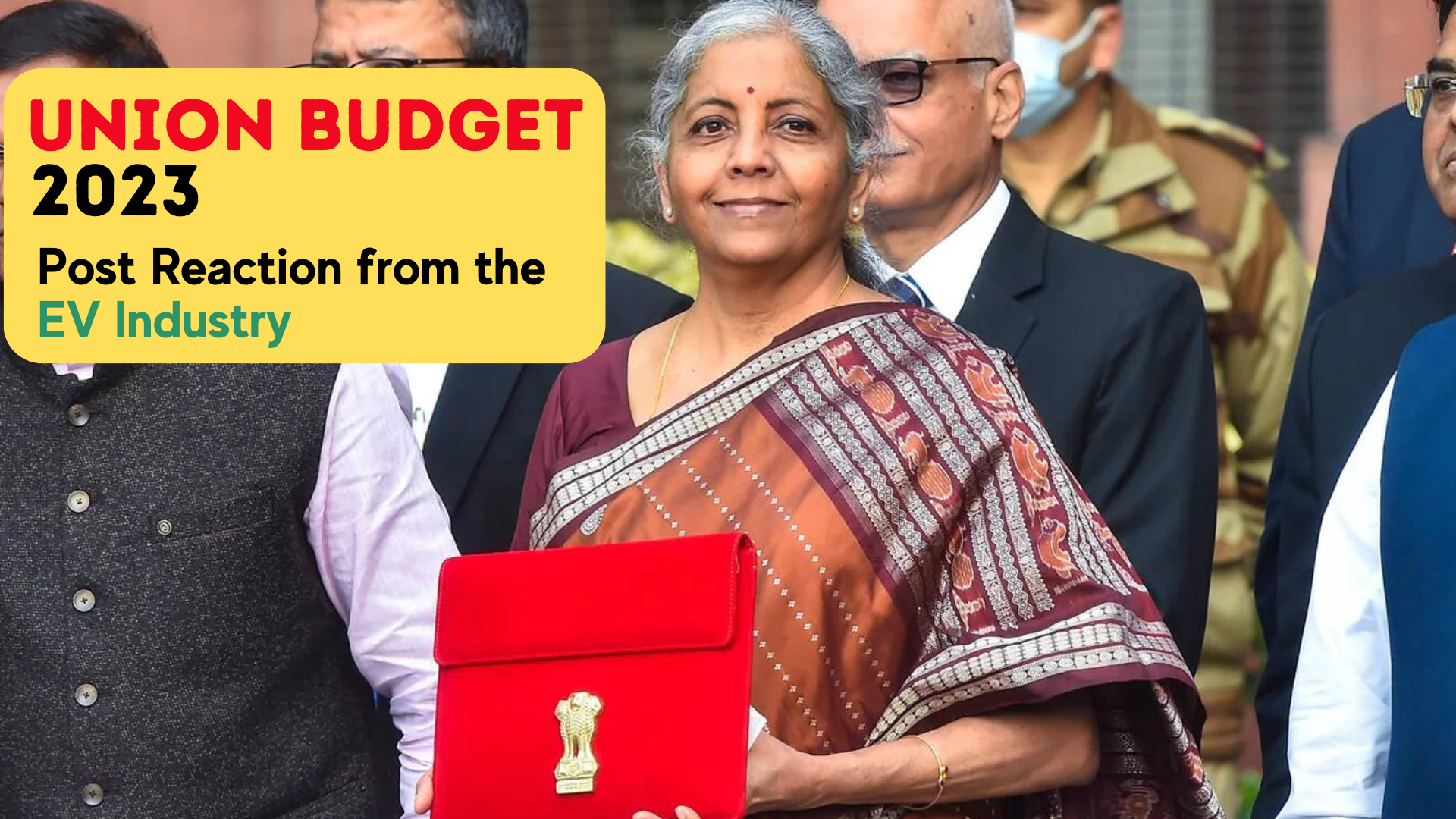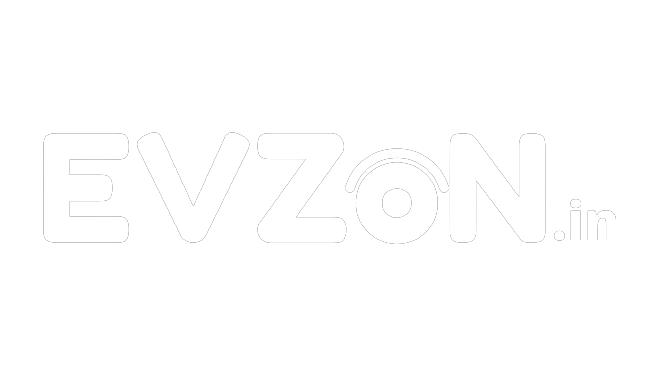
Table of Contents
Budget Reaction Quotes from EV Industry
Dr. Yogesh Bhatia, MD and CEO of LML
“This year’s union budget looks highly promising. The Agenda of introducing strict guidelines to eliminate ELVs, with the series of green mobility programs the government is planning to focus on, will surely change the face of sustainable mobility in India. No customs duty on Lithium batteries is going to be one of the key growth drivers for the industry. With various other supporting financial reforms, EV is certainly set to penetrate across nooks and corners.”
Mr. Varun Goenka, CEO & Co- Founder, Chargeup

The emphasis on green growth and net-zero emissions is the need of the hour as outlined in the Union Budget. The outlay of 35,000 crore for priority capital investments towards energy transition and net-zero goals will boost energy security in India. Further, the decision to support Battery Energy Storage Systems with a capacity of 4,000 MWH with viability gap funding will give a huge impetus to the clean energy sector.
One of the most impactful decisions this time is the extension of customs duty exemption for the import of capital goods and machinery required to produce lithium-ion batteries for
EVs in India. This move will reduce the initial capital investment needs of the battery manufacturers and is also likely to make the batteries become cheaper as there will be a larger manufacturing base for them. Concession on duty on lithium-ion cells import for EV batteries has also been extended for another year, which would lead to greater EV adoption in 2023. Similarly, basic customs duty exemption on raw materials required for manufacturing of nickel cathode used in the batteries has also been continued.
Improving the ease of doing business by reducing 39,000 compliances, and the decision to provide greater funding to state governments to replace old polluting vehicles are also welcome steps. It is expected that these old vehicles will be replaced with EVs and that would improve their adoption in the country. The establishment of 100 National Skill Development Centers will ensure that a larger number of youth across India are trained on advanced technologies and made ready to work in the climate-tech sector. All these are great initiatives, and if this momentum is further supported by the unveiling of the final draft for the Battery Swapping Policy, we will be able to witness accelerated growth of clean mobility in India.
Mr.Tushar Choudhary, Founder & CEO, Motovolt Mobility
The Union Budget for 2023-2024 has a strong focus on green growth and sustainability. The “Green Growth” priority sector is a step towards India’s resolve to achieve Net Zero by 2070. The government has granted infrastructure status to the EV sector, paving the way for easier access to credit for companies making EV components. This will reduce production costs and help expand India’s manufacturing capabilities in this sector. The scheme announced to scrap old vehicles and replace the old polluting vehicles will encourage more people to switch over from petrol/diesel cars to electric ones. The Indian Government is committed towards introducing green mobility solutions such as e-rickshaws, e-bicycles, and other clean energy transport systems in cities across the country with an emphasis on green growth with focus on green fuel. We are delighted to see such initiatives included in the Union Budget 2023.
Mr. Uday Narang, Founder, and Chairman, Omega Seiki Mobility
The government’s forward looking vision in promoting environment and sustainability in the recent Union Budget 2023, will prove to be an accelerator for the EV Industry. Extension of customs duty exemption for the manufacture of lithium-ion batteries and removal of customs duty on imported machinery used for manufacturing Li-ion batteries are welcome initiatives as these will help in boosting the demand for EV’s. The policy on the replacement of old polluting vehicles should accelerate the transition towards electric vehicles. Overall, we are happy with the budget as it is inclusive, and progressive and will encourage investments the EV sector in a big way.
Mr. Sachidanand Updadhyay, MD & CEO, Lord’s Mark Industries

Mr. Pratik Kamdar, Co-Founder, Neuron Energy
The Customs Duty exemption on capital goods and machinery to manufacture li-ion will be a facilitator for the country to transition to sustainable and eco-friendly mobility. The exemption will have a domino effect on the overall sector with the over substantial decrease in the overall cost of the finished products wherein the battery packs are likely to reduce by 5% coupled with lower initial investments. Additionally, the vehicle scrapping policy will also be beneficial if the old vehicles are replaced by electric vehicles. This will further aid in the country’s vision of mass EV adoption by 2030.
The sector also holds immense potential with regards to providing entrepreneurship opportunities and job creation. With decreased capital investments to manufacture ancillary supplies like li-ion batteries, it will provide a platform for new age businesses and entrepreneurs to venture into the space.
Overall, we are confident that this Budget will aid in the country’s adoption to electric mobility significantly.
Mr. Visakh Sasikumar, CEO & Co-founder, Fyn mobility

Customs exemption on capital goods and machineries for lithium batteries will reduce the per kilowatt-hour cost of batteries and thus accelerate EV adoption in both personal and commercial segments.
Mr. Pankaj Sharma, Co-Founder & Director, Log9 Materials

The proposed Customs duty exemptions on the import of capital goods and machinery required for the manufacturing of lithium-ion batteries bring in a new lease of life for all battery manufacturers as it would help accelerate the country’s production capacity and also gives the much-needed momentum to the country’s vision to become self-sufficient in its EV needs.
The outlay to the National Green Hydrogen Mission for 19700 crores is also a step in the right direction as it helps create the eco-system for a completely new Green Energy paradigm.
The announcement of Viability Gap Funding for Battery Energy Storage is a recognition of the criticality of Energy Storage as a core Infrastructure.
Custom duty exemption has been extended to the capital goods and machinery required to manufacture lithium-ion cells in EV batteries. This is going to be a big push for enabling the localization of Cell Manufacturing.
We also see other initiatives like incentivizing Municipal Bonds and the Urban Infrastructure Development Fund (UIDF), which will help create new Urban Infrastructure, of which Clean Mobility Infrastructure will be a crucial part.
We would like to see more being offered in terms of incentives for the entire EV Infrastructure sector. As I have said, India could quickly become the global Hub for EVs, and we would have liked to see more incentives to encourage domestic manufacturing in the sector.
Mr. Banwari Lal Sharma, CEO, Consumer Business, CarTrade Tech

The Union Budget 2023-2024 announced by Finance Minister Nirmala Sitharaman is progressive, prudent, and growth-led, with an eye to provide impetus on the savings of the public.
It is a ‘green budget‘ for the automotive and mobility sectors. The sustainability measures taken through announcements on green hydrogen and other energy sectors will help in furthering the government’s target of carbon neutrality by 2070. The increased Capex outlay on energy transition is likely to spur investments and skill development in a green economy.
The viability gap funding for battery energy storage systems is also likely to create critical infrastructure, while custom duty reduction on capital goods for Lithium batteries manufacturing will facilitate faster adoption of EVs.
Mr. Lalit Singh- Chief Growth Officer- TelioEV

Excited to see the budget‘s focus on green growth and the pro-EV initiatives, particularly the reduction of customs duties on lithium batteries and the extension of subsidies for EV batteries. These actions will drive demand for electric vehicles and align with the budget‘s goal of promoting eco-conscious lifestyles. The policy to replace old, polluting vehicles will further accelerate the transition to EVs. Overall, a well-rounded, progressive budget will encourage investments in the EV sector.
Mr. Lalit Khetan, Executive Director and CFO, Ramkrishna Forgings

Mr. Saurav Goyal, Co-Founder, and COO, Metastable Materials

and net zero objectives which will help the EV industry to work alongside them in fighting this war against the Climate Crisis, However, along with focusing on green energy growth, the government should have also introduced some policies regarding solving the major problem which pertains to the EV industry – recycling of the batteries. This will further help the government to eliminate any future hurdle in achieving the net zero target.
Divya Chandra, Director, Atul Greentech

can be a turning point for the automobile industry’s energy mix. We believe there will be a dynamic transition with an increase in EVs as well as vehicles powered by CNG, ethanol, and hydrogen. Electric vehicles, especially in the three-wheeler segment, will play a major role in the new energy mix. With the budget, the government has reiterated its commitment towards green mobility and if the policies and incentives are executed as planned, it will fast-track the automobile industry’s shift to cleaner mobility solutions, thereby helping achieve our 2070 carbon neutrality goals.
Mr. Dr Amitabh Saran- Founder and CEO, Altigreen
Mr. Kapil Shelke, Founder & CEO, TORK Motors

The changes in the Income tax slab structure have enhanced the purchasing power of the populace. This move will encourage the adoption of cleaner, cost-effective means of travel for their daily commute and the availability of FAME-II subsidy will further boost the sales of electric vehicles in the coming fiscal. Additionally, the extension of customs duty on the import of capital goods and machinery for developing lithium-ion cells would also enable EV manufacturers to localise their products in the long term, leading towards reduction in the cost of an electric vehicle for the consumer in the years to come, particularly for a brand like ours that are 95% indigenously manufactured in India.







Good to see some support for ev industry. Way to go..